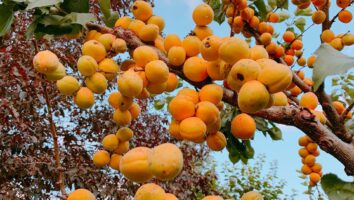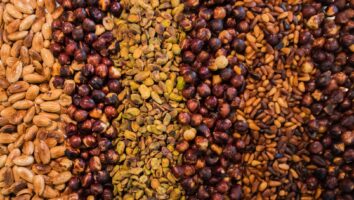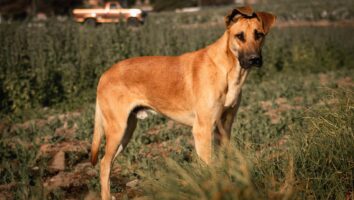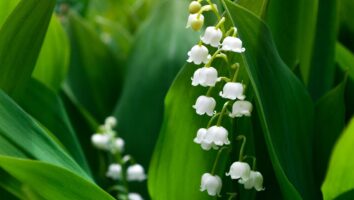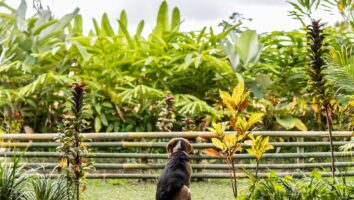Dog
Fruit Pit Concerns: Toxicity, Obstruction and Other Tummy Troubles
Fruit pits, including cherry, apricot, and peaches are toxic to pets and can cause problems if swallowed whole. This article discusses the common causes and symptoms of fruit pit toxicity in dogs,…
Macadamia Nut Toxicity in Dogs
The macadamia nut, also called Australia Nut and Queensland Nut, is toxic to dogs. The exact cause/substance that creates the toxicity is still unknown. Cats don’t seem to be affected, either…
The Truth About Onion and Garlic Toxicity in Dogs
Garlic and onions are from the same family, Liliaceae, and are toxic to dogs, cats, and horses. The toxic component is N-propyl disulfide and other sulfur-containing oxidants (SCO). Cats are the…
Alcohol Poisoning in Dogs
Pets can be attracted to our Friday night cocktails, especially when they’re mixed with sweet juices and liqueurs. If you suspect your pet has gotten into alcohol or is showing signs of alcohol…
Coffee and Other Caffeine Dangers for Dogs
Products containing caffeine are in essentially every household. But that doesn’t mean they’re safe foods for dogs to eat. In this article, we’ll explain what types of caffeinated foods your pet…
Everything You Need to Know About Xylitol Poisoning in Dogs
Xylitol is a common sugar substitute found in many different types of sugar-free foods and other products for human consumption. Although it isn’t dangerous to people, cats, and ferrets, it is toxic…
Should you be worried if your dog’s stool changes color?
Monitoring your pet’s fecal material, including color, consistency, and frequency, are important parts of attentive pet care! Anything that’s abnormal for your dog should be noted. If it’s a…
Help! Why is my dog vomiting blood?
Hematemesis, or bloody vomit, can be a severe clinical sign of many different diseases or other traumas. If you see any blood in your dog’s vomit, contact a veterinarian immediately. We’ve compiled…
Safe Treatments for Your Dog’s Constipation
If your dog is passing small, hard stools, or is posturing to defecate but no stool is coming out, he may be suffering from constipation. Constipation can be uncomfortable for your dog, and…
Gastric Dilatation and Volvulus
If you have a large breed dog, you’ve likely heard the term “bloat” or “GDV”. This is for good reason, as GDV is one of the most serious conditions encountered in veterinary medicine. It can be…
Poisonous Plants for Dogs and Cats: Lily of the Valley
Lily of the Valley (Convallaria majalis) is a perennial plant (grows back every year) that has small bell-shaped white flowers that are beautiful and fragrant. The plant also produces berries. It is…
Poisonous Plants for Dogs and Cats: Dieffenbachia
Dieffenbachia is a genus of perennial, tropical, flowering plants that are widely sold and commonly kept as houseplants due to their tolerance of shade and their pretty and varied appearances. If…
Poisonous Plants for Dogs and Cats: Azalea
Azaleas, also called Rosebay or Rhododendron, are common plants in outdoor landscaping. Despite their beauty, they can be toxic if eaten by dogs, cats, rabbits, reptiles, pigs, horses, and goats (to…
Poisonous Plants for Dogs and Cats: Oleander
Oleanders are beautiful flowering plants that can grow incredibly large. Oleanders are commonly used in landscaping along fences for privacy and for their beauty. Unfortunately, the Oleander plant…
Poisonous Plants for Dogs and Cats: Tulips
Tulips are beautiful, popular flowers that many of us have in our gardens. But it’s important to note that the Tulipa genus of flowers is toxic to cats, dogs, and horses and can be fatal if…
Poisonous Plants for Dogs and Cats: Philodendron
Philodendrons are common house plants and also a very common part of tropical landscaping in the southern US. All parts of all types of philodendrons are toxic to most animals, including dogs, cats,…
Poisonous Plants for Dogs and Cats: Sago Palm
Sago Palms are common across the United States, both as indoor and outdoor ornamental plants. If you have pets, it's important to know that these plants are poisonous if eaten or chewed on. Continue…
Noise Anxiety in Cats and Dogs
We often celebrate New Year’s Eve, the 4th of July, and other holidays by lighting fireworks with loud sounds and flashing lights. How can we celebrate with friends and family, but also keep our…







